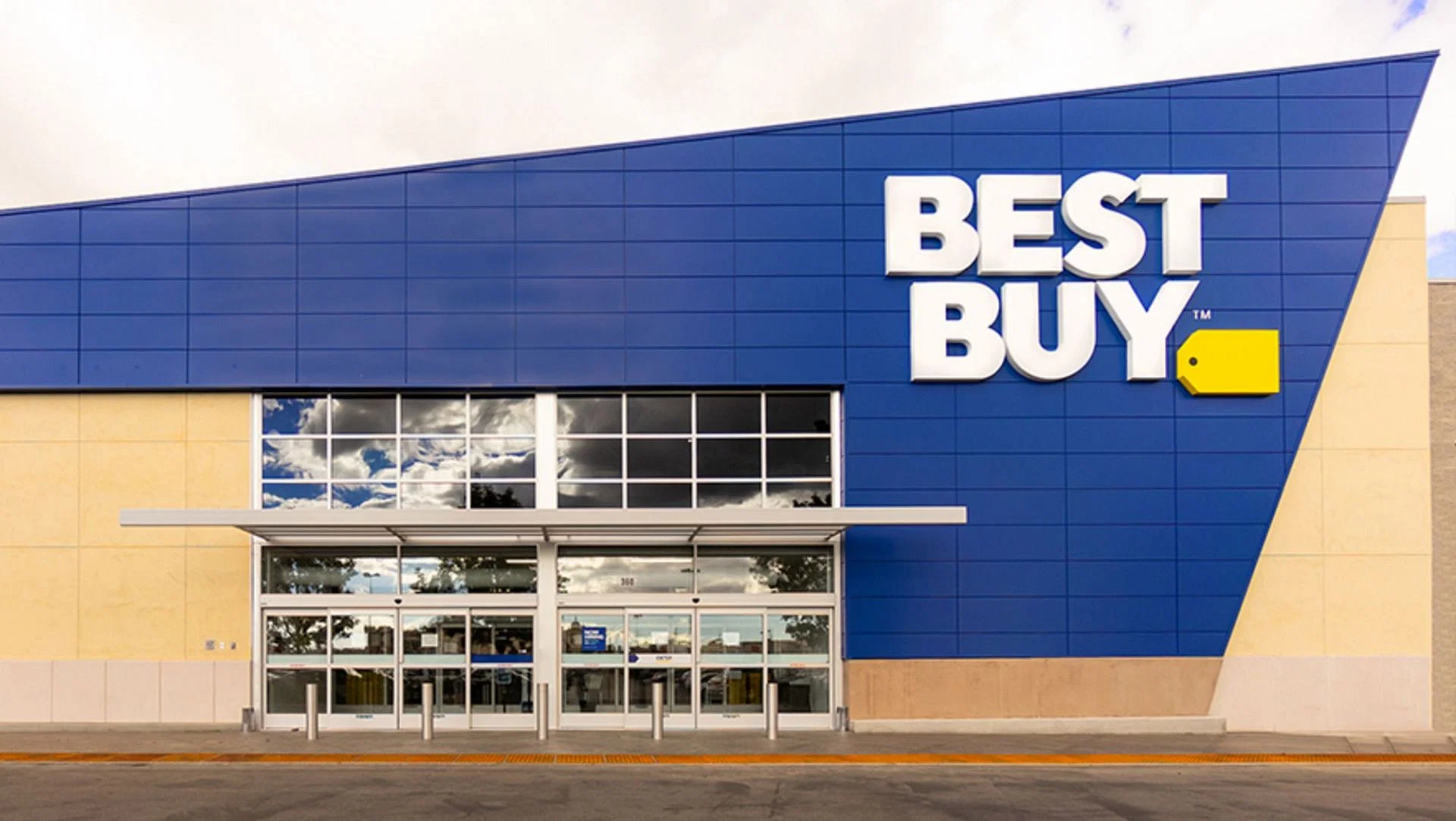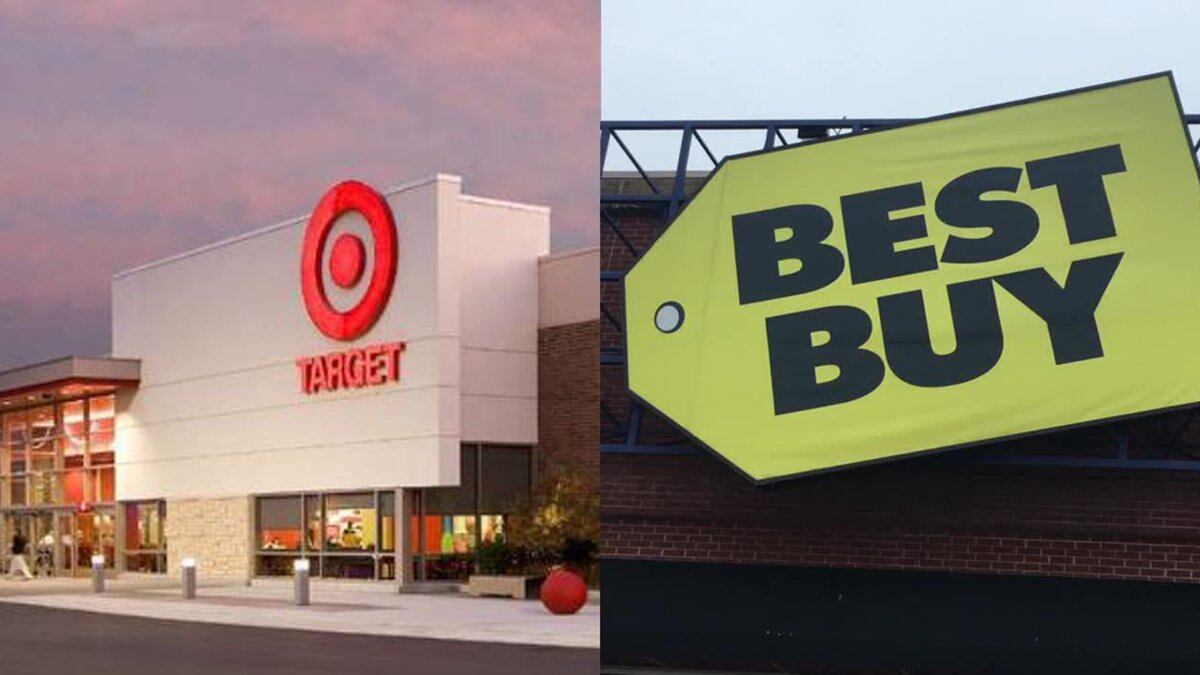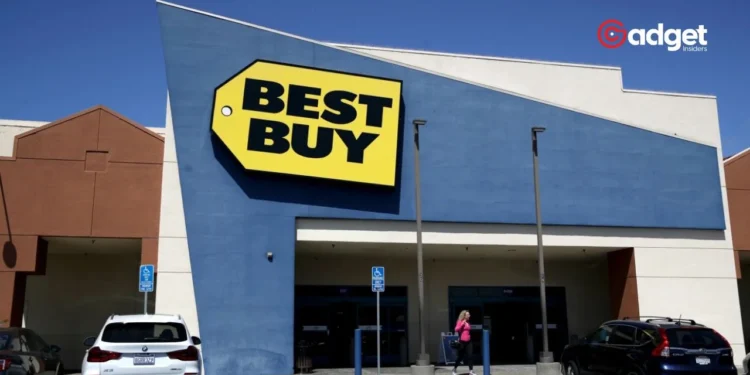In the bustling streets of Manhattan, where commerce and diversity blend seamlessly, the Best Buy store has become more than just a retail hub. Recently, the spotlight turned on this consumer electronics giant, not for its Black Friday deals, but for its corporate ethos surrounding inclusivity and support for the LGBTQ+ community.

Last week, Thomas DiNapoli, New York’s state comptroller, penned a compelling letter to Best Buy’s leadership. DiNapoli, whose office oversees a colossal $207 billion public pension fund that includes investments in Best Buy, raised poignant questions following a report by NBC News.
The news outlet disclosed that the retail giant had considered screening donations to LGBTQ nonprofits, a move allegedly spurred by conservative influences.
“Diversity, equity, and inclusion are fundamental values of companies with sound, sustainable, and profitable long-term strategies. Inclusion is essential for employee recruitment and retention, a driver of innovation, and an element of consumer brand loyalty,” DiNapoli highlighted in his letter.
This statement underscores a growing sentiment in corporate America where inclusivity isn’t just a moral choice but a business imperative.
Recent reports questioned @BestBuy’s commitment to inclusivity + support for the LGBTQ+ community. As trustee of NY state’s pension fund + a long-term investor, I have reminded the company that compromising core values threatens shareholder value. https://t.co/QEVA7yrvO6
— Tom DiNapoli (@NYSComptroller) May 2, 2024
A Controversial Shift in Corporate Giving?
The scrutiny came after the National Center for Public Policy Research (NCPPR), a conservative think tank holding shares in Best Buy, reportedly pressured the company. The NCPPR advocated for a review of how donations might align with extreme positions not directly connected to the retail giant’s core business objectives.
Scott Shepard, the general counsel of NCPPR’s Free Enterprise Project, voiced concerns over equity initiatives, branding them as potentially discriminatory.
“Equity is by its own terms discrimination based on race, sex, and orientation against members of ‘non-diverse’ groups in ways that often violate the law and the Constitution,” Shepard argued, challenging the conventional views on corporate diversity practices.

This backdrop set the stage for a corporate saga that entangles shareholder values, public reputation, and ethical responsibilities. The tension escalated when Shepard suggested that Best Buy should cease supporting groups like The Trevor Project and others deemed too radical by the think tank.
Best Buy’s Response and Ongoing Commitment
Amid these controversies, Best Buy’s stance remains firm on its dedication to inclusivity. “Nothing has changed in the ways we give to LGBTQIA+ organizations,” stated Carly Charlson, a spokesperson for Best Buy.
Charlson reassured that Best Buy’s commitment to the LGBTQ+ community remains unwavering, highlighted by its longstanding support for the Human Rights Campaign, America’s largest LGBTQ advocacy group.
Best Buy’s position on this matter reflects a broader corporate ethos that values diversity not just as a social responsibility but as a cornerstone of its business strategy.
This approach is echoed by Eric Bloem, Vice President of Programs and Corporate Advocacy at the Human Rights Campaign, who noted ongoing collaborations to understand and reinforce true allyship in the corporate sphere.

Looking Ahead: Corporate Identity and Shareholder Activism
As Best Buy navigates these turbulent waters, the implications of its decisions extend far beyond its immediate stakeholders. The discussion around corporate giving, especially in sensitive areas like LGBTQ+ rights, poses significant questions about the role of businesses in societal and cultural debates.
The forthcoming meetings between Best Buy’s executives and the state comptroller’s office are set to be a crucial juncture. They will not only define the company’s commitment to its declared values but also set a precedent for how corporations can balance diverse stakeholder interests in an increasingly polarized society.
This episode serves as a reminder of the intricate dance between maintaining a strong ethical backbone and managing the multifaceted demands of shareholders, customers, and employees in the modern corporate landscape.
As companies like Best Buy continue to stand at the intersection of commerce and social justice, their actions will likely influence broader corporate practices and the very definition of corporate responsibility.










